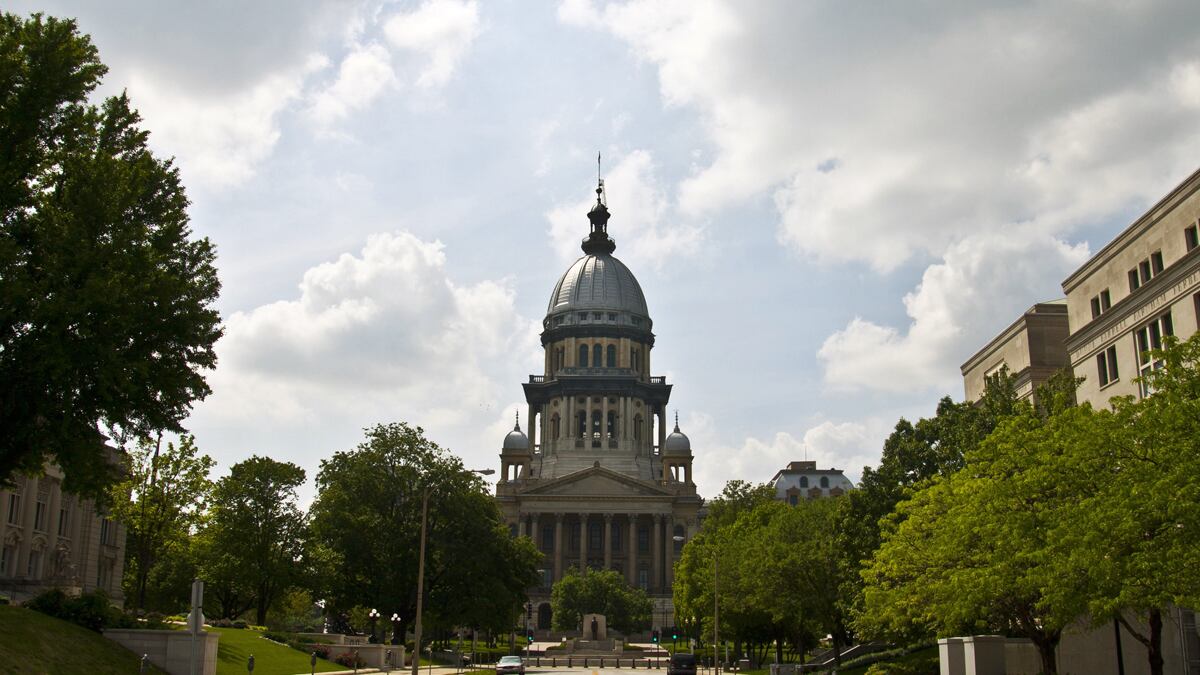Joe Walsh may be a cable TV favorite, but the garrulous and contentious Tea Party freshman congressman from Chicago’s suburbs should be politically dead, dead, deadski, as Michael Keaton put it in Beetlejuice.

The fact that Walsh is very much alive heading into the final weeks of the campaign suggests a possible Election Day stunner on President Obama’s home turf: Despite the president’s own assured victory in Illinois, more Republican congressmen may survive than ever imagined after Democrats vividly shafted the GOP in redrawing congressional districts.
That’s nationally significant since, as Walsh told The Daily Beast in a uncharacteristically noncontroversial analysis, “Nancy Pelosi’s way back to the speaker’s gavel was through these districts [in Illinois]. It ain’t going to happen.”
The odds are slim that the Democrats can actually regain a House majority. But hopes for major gains, and possibly an improbable recapturing of the gavel, rest in part on Illinois as a prime opportunity.
Going into this cycle, the state’s congressional delegation consisted of 11 Republicans and eight Democrats. Since its population grew less than many others in the last decade, the state had to lose a seat. Democrats, who run the legislature, got to draw the map. And they were brutish in undermining Republicans. Even a three-judge federal panel, which heard a legal appeal by the GOP, conceded the party in power’s handiwork reflected “a blatant political move to increase the numbers of Democratic congressional seats.”
One new district, the 17th, strained to link the so-called Quad Cities on the Illinois-Iowa border with heavily Democratic areas of Peoria and Rockford. It did so by “slicing away” sections of the districts of Republicans Aaron Schock, one of the party’s wunderkinds and the youngest member of Congress, and veteran Donald Manzullo. The map split Rockford, even though it’s “been within a single district since 1850,” the court wrote. Bobby Schilling, a freshman Republican in the 17th who ran a pizza restaurant before heading to Washington, found that just 51.9 percent of his constituents were in his new district. Adam Kinzinger, a young former fighter pilot and freshman incumbent, found just 20.5 percent of his constituents in what was slated as his new bailiwick.
Similar situations abounded for Republican congressmen, prompting one, Tim Johnson, to retire and Kinzinger and Manzullo to face a primary against one another (Kinzinger would win). Hopes of legal redress failed as the three judges upheld the map by agreeing with the defense that key federal legal provisions were not violated.
But trial testimony underscored the active involvement of the Washington-based Democratic Congressional Campaign Committee in creating the Illinois map, including emails about “how to destabilize Republican incumbents” and one that heralded that its aim was “seemingly accomplished” by the map.Conventional wisdom at the time was that GOP incumbents Walsh, Judy Biggert, Robert Dold, Schilling and the soon-to-retire Johnson were seriously endangered.
But interviews with campaign consultants and party officials on both sides suggest that, with less than a month to go, the Democrats’ belief that they could recapture five, even six, Republican seats appears to be folly.
The consensus today seems to be that it’s hard to envision the Democrats picking up more than three Republican seats. Several Democrats said they would safely wager only on a pick-up of just two. A mix of factors seems at play, including several weak Democratic candidates and campaigns; poor coordination by the party apparatus; and several million dollars in super-PAC contributions from outside the state helping some Republicans, including Walsh.
Some campaign officials in both parties say internal polling shows a softening of support for Obama compared with the levels of enthusiasm he generated in their districts four years ago. He’s done little personally to boost Democratic candidates back home, with Sen. Dick Durbin seen by some as the only member of the state’s party elite to be working hard for their elections.
The spotlight race is Walsh against Democrat Tammy Duckworth, the handicapped Iraq War veteran who served in the Obama administration and whose election is a party priority. The new district in which she runs was essentially crafted for her and saw Obama win 63 percent of the vote against John McCain.
Duckworth has strong ties to important Democrats, including Senator Durbin, Chicago Mayor Rahm Emanuel and Obama reelection strategist David Axelrod. And while she is ahead by a healthy 10 points in one Democratic Party poll, a new poll by the Republican-skewing but credible We Ask America claims Walsh is actually leading, 47-46.
Many politicos still see Duckworth as the favorite against the argumentative Walsh, who flabbergasted Republicans by upending a large primary field and then upsetting a three-term Democratic incumbent two years ago with virtually no GOP financial support. He’s proven an uncompromising pain in the neck to GOP leadership in the House, often deriding them for selling out conservative ideals. He’s also generated headlines for criticizing Duckworth for mentioning her military service too often, and for a very public child-support dispute with his ex-wife.
Seen as a gadfly by the party establishment when he ran in 2010, he’s now the belated recipient of its largess; conservative PACs from out of state have given him more than $2 million so far. Meanwhile, Duckworth disclosed on Wednesday that’s she’s received contributions of $1.5 million in the third quarter—-the largest haul by a Democratic challenging an incumbent nationwide.
But she probably should have had a very substantial double-digit lead built by now, according to a few analysts in both parties who contend that her campaigning has not matched Walsh’s vigor.
Two other suburban Chicago districts, once seen as very strong Democratic pickup possibilities, are now up in the air. Former Democratic congressman Bill Foster faces Republican incumbent Judy Biggert in the 11th District, while Republican freshman Dold confronts Democrat Brad Schneider, a management consultant, in the 10th.
The Foster–Biggert race is roughly a tie, according to recent polling, while Dold seems on his way to a far easier win than imagined reelection in a district drawn to help the challenger, whom top Democrats confide has not proven a robust rival.
The best of the candidates recruited by the Democrats may be an East Moline alderman, Cheri Boustos, who seeks to unseat Schilling. But the incumbent is viewed by some to be running a good campaign and may well keep his job.
For the moment, the heady visions of victory after the state remap are clearly deflated. “It’s a complete failure,” bemoans one Democratic operative.
At minimum, drawing the new districts proved far easier than executing a plan to actually win them.






